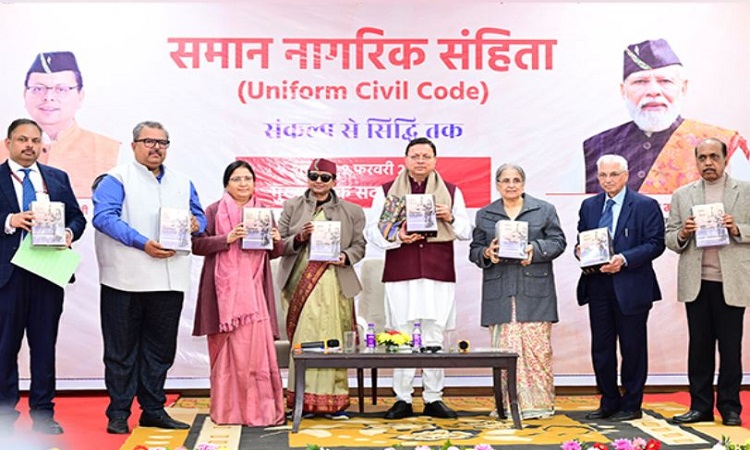The Uttarakhand Cabinet, led by Chief Minister Pushkar Singh Dhami, has greenlit the Uniform Civil Code (UCC) bill, marking a historic move. The bill, crafted based on recommendations from a government-appointed committee, will be presented in the Uttarakhand Assembly on February 6. If passed, Uttarakhand would be the first state post-Independence to adopt the Uniform Civil Code, aiming to standardize civil laws for all citizens, irrespective of their religious affiliations.
Committee Recommendations
-
Ban on Polygamy and Child Marriage: The committee proposes a comprehensive prohibition on polygamy and child marriage to ensure uniformity in personal laws.
- Common Marriageable Age: Advocates for a consistent marriageable age for girls across all faiths to establish equality and eliminate disparities.
-
Uniform Grounds and Procedures for Divorce: The committee suggests enforcing similar grounds and procedures for divorce, promoting standardized legal processes.
Special Assembly Session
To deliberate on the UCC bill, a special four-day session of the Uttarakhand Assembly has been scheduled from February 5 to 8. This session aims to facilitate thorough discussions before passing the legislation.
Chief Minister’s Emphasis on Deliberation
Chief Minister Dhami stresses the importance of intensive deliberations, delaying the initial cabinet meeting on February 3 to allow ministers ample time for a comprehensive review. He emphasizes that the UCC implementation aligns with promises made during the 2022 Assembly polls and is not a tactical move for the 2024 Lok Sabha elections.
Opposition and Concerns
Despite the Chief Minister’s assurances, the UCC draft has sparked strong reactions. The Muslim Service Organisation opposes the code, viewing it as conflicting with religious specifics. Members of the Muslim community express concerns, alleging targeting of laws specific to their religion. Chief Imam of Uttarakhand, Mufti Rais, criticizes the government for not involving legal experts from all religions in the UCC formulation and questions the lack of public scrutiny for the draft. Additionally, concerns are raised about the exclusion of tribes from the code, contributing to the perception that only Muslim personal law is being targeted.




 L&T Vyoma to Study 250 MW Green AI D...
L&T Vyoma to Study 250 MW Green AI D...
 Historic Approval: State Cabinet Clears ...
Historic Approval: State Cabinet Clears ...
 Andhra Pradesh Bags India’s Largest ₹8,1...
Andhra Pradesh Bags India’s Largest ₹8,1...








